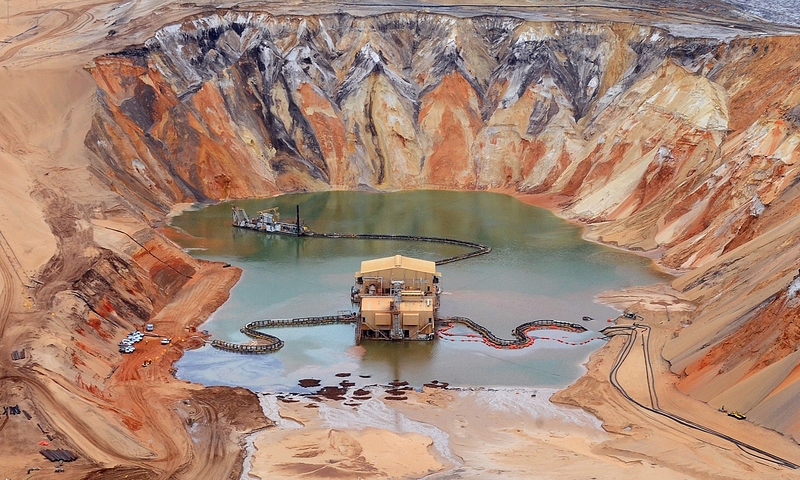In The Guardian, Nicola Davison tells the story of the emergence of the term “Anthropocene” among scientists and the controversy that it has provoked, especially among geologists. Some geologists believe that industrial human civilization has made a sufficient impact on the planet to justify declaring an end to the Holocene and the start of a new period. Others assert that on the scale of geological time, humans have been around for only a blip, so it’s premature to inaugurate a whole new epoch. As Davison writes, a working group of distinguished geologists have made a bold move amidst this fierce debate, formally declaring that the Anthropocene began in the mid-twentieth century, in the wake of industrialized global war and the use of nuclear weapons. Here’s an extract from the article:
Academics both inside and outside geology have noted the Anthropocene’s political implications. In After Nature, the law professor Jedediah Purdy writes that using the term “Anthropocene” to describe a wide array of human-caused geological and ecological change is “an effort to meld them into a single situation, gathered under a single name”. To Purdy, the Anthropocene is an attempt to do what the concept of “the environment” did in the 1960s and 70s. It is pragmatic, a way to name the problem – and thus begin the process of solving it.
Yet if a term becomes too broad, its meaning can become unhelpfully vague. “There is an impulse to want to put things in capital letters, in formal definitions, just to make them look like they’re nicely organised so you can put them on a shelf and they’ll behave,” said Bill Ruddiman, professor emeritus at the University of Virginia. A seasoned geologist, Ruddiman has written papers arguing against the stratigraphic definition of the Anthropocene on the grounds that any single start-date would be meaningless since humans have been gradually shaping the planet for at least 50,000 years. “What the working group is trying to say is everything pre-1950 is pre-Anthropocene, and that’s just absurd,” he told me.
Ruddiman’s arguments have found wide support, even from a handful of members of the working group. Gibbard told me he had started out “agnostic” about the Anthropocene but lately he had decided it was too soon to tell whether or not it really was a new epoch. “As geologists, we’re used to looking backwards,” he said. “Things that we’re living through at the moment – we don’t know how significant they are. [The Anthropocene] appears significant but it would be far easier if we were 200 to 300, possibly 2,000 to 3,000, years in the future and then we could look back and say: yes, that was the right thing to do.”
Yet for the majority of the working group, the stratigraphic evidence for the Anthropocene is compelling. “We realise the Anthropocene goes against the grain of geology in one sense, and other kinds of science, archaeology and anthropology, in another sense,” Zalasiewicz told me. “We try and deal honestly with their arguments. If they were to put out something that we couldn’t jump over, then we’d hold up our hands and say: OK, that’s a killer blow for the Anthropocene. But we haven’t seen one yet.”
Image: Enterprise Sand Mine, Australia. Via The Guardian.
